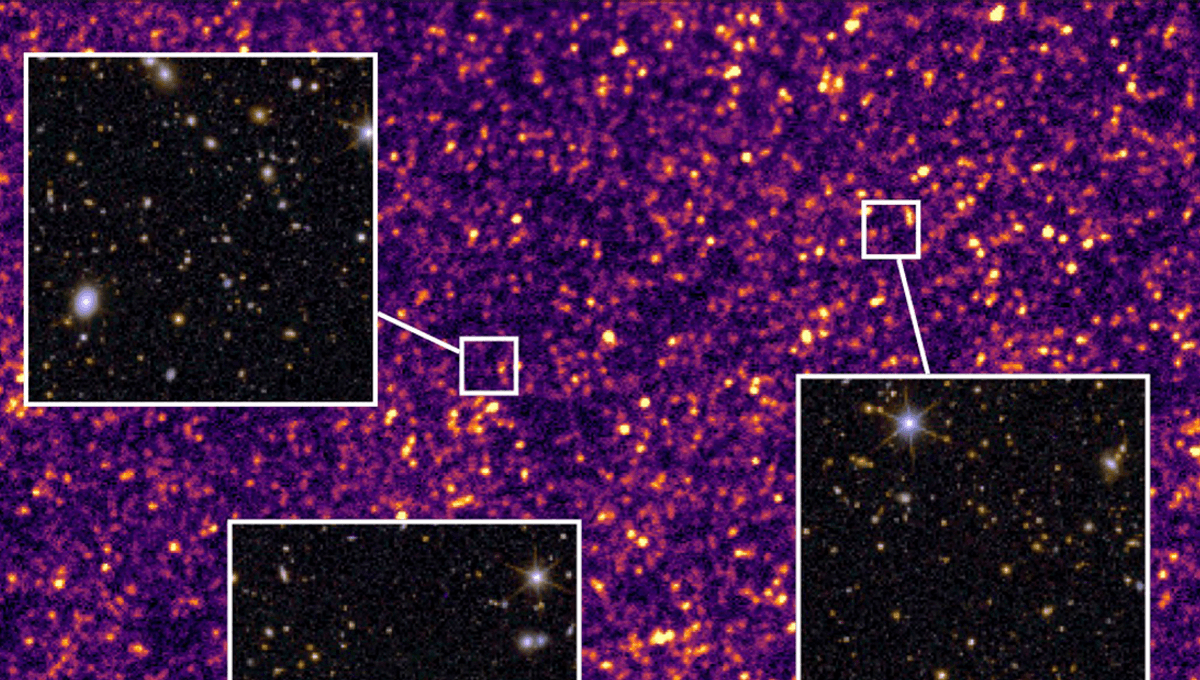
Astronomers looking at data from the European Space Agency’s (ESA’s) Euclid mission have concluded that the universe is only going to get “colder and deader” from here on out.
The Euclid telescope launched in 2023, hitching a ride on SpaceX’s Falcon 9 to study the cosmos from the Sun-Earth Lagrange point 2, 1.5 million kilometers (932,000 miles) from Earth. Its job is a big one, exploring the structure and evolution of the universe across billions of years.
“The space telescope will create a great map of the large-scale structure of the Universe across space and time by observing billions of galaxies out to 10 billion light-years, across more than a third of the sky,” ESA explains. “Euclid will explore how the Universe has expanded and how structure has formed over cosmic history, revealing more about the role of gravity and the nature of dark energy and dark matter.”
Now astronomers have unveiled a sneaky look at the results of this ongoing survey, and a new analysis combines these optical observations with measurements at longer wavelengths (far-infrared) from the Herschel Space Observatory. In a new preprint paper that has not yet been peer-reviewed, a large team of astronomers led by Dr Ryley Hill at the University of British Columbia (UBC) analyzed these findings, focusing on star formation rates and the temperature of cosmic dust.
“By combining the data and having such a huge sample of galaxies – 2.6 million of them – we can produce the most statistically robust calculations to date,” Dr Hill explained in a statement.
“In the past, researchers wouldn’t have a large enough sample, or might be missing key populations of cold or hot galaxies. Since Euclid is so comprehensive, you can really measure dust temperatures in a way you can’t argue with.”
Looking at the data, the team has a bit of bad news for the universe. The party is dying down a little.
It has been thought for some time that the temperature of dust in a galaxy is closely tied to the rate of star formation in that galaxy.
“Dust grains are primarily produced in the ejecta of evolved stars, such as [asymptotic giant branch] stars and supernovae, and are subsequently injected into the [interstellar medium (ISM)] via stellar winds and explosive events. Once injected into the ISM, dust grains grow by accreting metals and coagulating into larger particles, but they can also be fragmented or destroyed by supernova-driven shocks. Over time, energetic gas particles erode dust through sputtering, returning the material to the gas phase,” a paper on the topic from earlier this year explains.
“Interstellar dust comprises only ∼1% of the interstellar medium (ISM) by mass, yet it has a significant impact on galaxy evolution by regulating heating, cooling, and chemistry.”
Looking back into the early universe, the new team finds that temperatures were about 10 degrees hotter, around 10 billion years in our past. Back then, cosmic dust temperatures were around 35 Kelvin, or -238 Celsius (-396.4 Fahrenheit). That still sounds intensely cold, but this is space we are talking about. At those temperatures, star formation would be a lot more abundant than it is today.
“The Universe will just get colder and deader from now on,” Dr Douglas Scott, a cosmologist at UBC and author on the preprint, added. “The amount of dust in galaxies and their dust temperatures have been decreasing for billions of years, which means we’re past the epoch of maximum star formation. Dust grains are connected with star formation, and when stars burn up, they make a whole bunch of dust grains in the process.”
This is far from the last word on the story – Euclid has already surveyed an area 30 times larger than the release this study was based on – but the study indicates that the universe may be cooling down a little, and we have seen the peak star formation era. As Scott said, it’s likely only going to get deader from here on out.
The paper is available as a preprint on the University of Bonn website.
Source Link: "The Universe Will Just Get Colder And Deader From Now On" Major Euclid Survey Of The Cosmos Shows